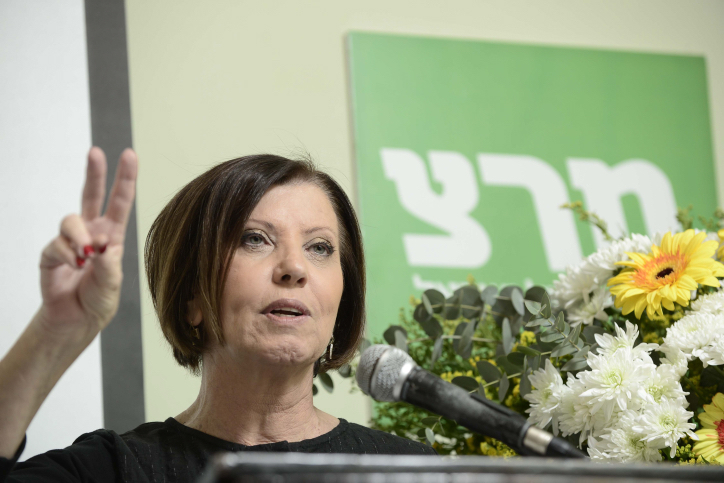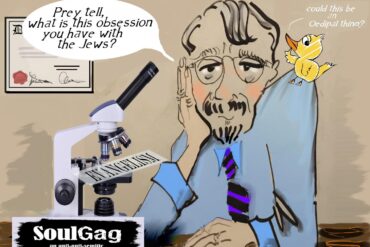The Meretz faction is in disarray.
The party that has been a stable fixture of Israeli politics since 1992 in the space between Labor and Ḥadash is on the brink following its role in the recent coalition’s dissolution. Its poll numbers are hovering uncomfortably close to the electoral threshold. Its leader Nitzan Horowitz has been forced to retire. And party stalwarts Issawi Frej and Tamar Zandberg – a former party leader herself – have followed Horowitz out the door.
To fill the party’s leadership vacuum and revive it from the depths, a leadership race has formed between former party leader Zehava Galon and former IDF Deputy Chief of Staff Yair Golan. Galon was first elected to the Knesset with Meretz in 1999 and led the party from 2012 until her retirement in 2018, since becoming a regular columnist for Haaretz. Golan joined politics in 2019 after retiring from military life, initially with Ehud Barak’s Democratic Union before officially joining Meretz the following year.
Neither Galon nor Golan are strangers to controversy. Galon has run the gambit from calling for the repeal of the Law of Return (decrying the law as “discriminatory” and “undemocratic”) to advocating for the lynching of Bibi Netanyahu and his supporters. Golan infamously compared Israel to Nazi Germany in a 2016 Holocaust Day address and referred to Judea and Samaria’s Jewish residents as “subhuman.”
Galon and Golan are again both diving headfirst into controversy with the leadership of Meretz on the line, this time over Meretz’s relationship to Zionism. In an interview with KAN News, Galon, the frontrunner, said the following:
“We [Meretz] never defined ourselves as a Zionist party, and we never defined ourselves as a non-Zionist party. We have Zionists, I am a Zionist, but we also have Arabs, and I will not force them to define themselves as Zionists. Therefore, we are an Israeli party, and we see ourselves as partners with anyone who believes Israel should be a democratic state.”
According to Galon’s assertion, Zionism, or Jewish ideals, aspirations, values, and culture more broadly, are fine and good as long as they are firmly relegated to a secondary status behind some kind of Western-style civic national identity called “Israeli.” Authentic Jewish identity in its place, under the dominion of European systems, institutions, and ideological paradigms.
What’s ironic is that Galon’s vision of Meretz as a champion of civic nationalism is itself part of an assimilationist impulse inherent in Zionism to mimic the West.
Golan rebuked Galon following the interview, but strictly on electoral grounds. Golan responded on Facebook:
“If we restrain ourselves to a self-definition most Israelis do not accept, we are setting ourselves up for failure and condemning Meretz to be a niche party forever. We do not have this privilege. What was wise to do as the left flank of a governing party is no longer appropriate in the current Israeli reality. We have a new historic role – to be the base of a large Left returning to govern. Zionism is the Jewish people’s modern national movement and we cannot give up on it, and do not need to.”
In his ostensibly comforting words, Golan did not even attempt to reject Galon’s proposed paradigm; a limited and approved place for Jewish ideal and aspiration within the bounds of European-style systems, institutions, and ideological paradigms. Beyond their cynical bickering over electoral utility and semantics, there is no real disagreement.
This debate between Galon and Golan is an entirely superficial argument taking place within a single narrow worldview. In fact, the supposed ideological diversity of nearly the entire recent coalition was little more than political theater. From Golan all the way to Naftali Bennett and Ayelet Shaked, the Zionist factions comprising the outgoing “unity” government merely market different flavors of a single ideological camp that understands issues through the lens of Western liberalism. Jewish identity has a place in the state but only so long as it’s subordinate to the values and worldview of the West.
Beyond the controlled opposition of cynical political insiders, there exists a true alternative. The State of Israel must not merely be the British Mandate with a Jewish flag, but rather a Jewish state fully and completely, in its national character, territorial character, legal character, cultural character, moral character, universal character, etc. But this requires a real conversation over what makes a state “Jewish” in the 21st Century. The inferiority complex of our elites to Western civilization must finally be broken, and that begins with deepening the level of our political discourse.





